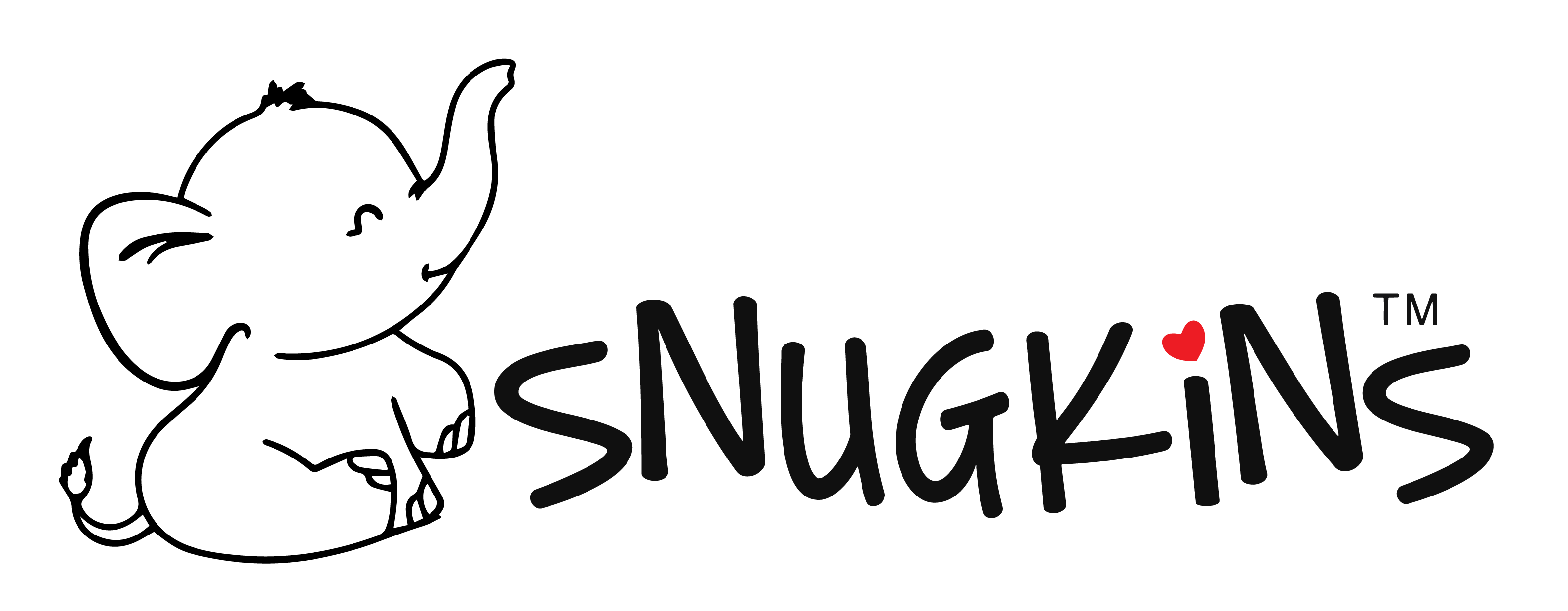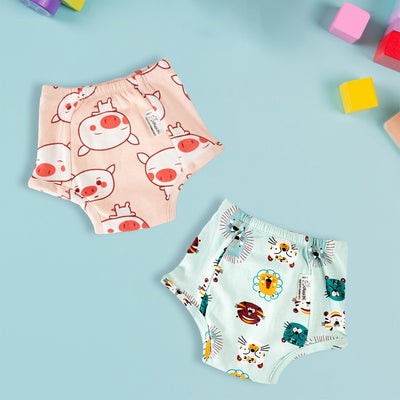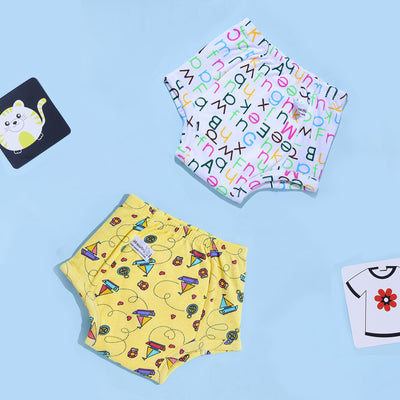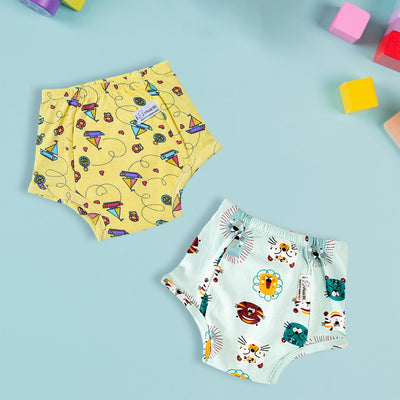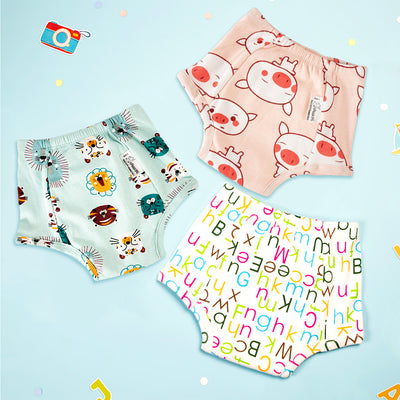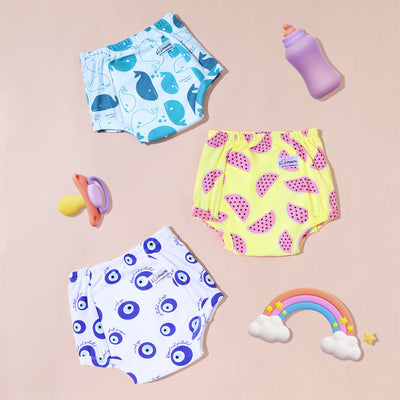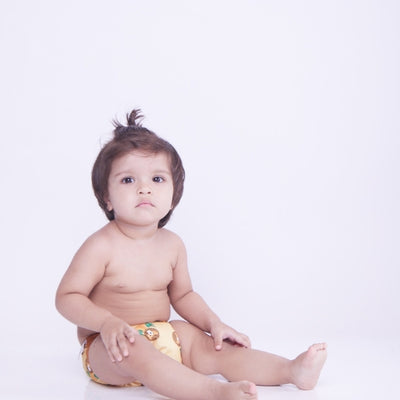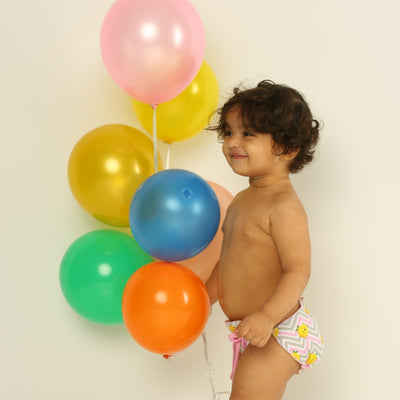Choosing Cloth Diapers: The Best Way to Protect Your Baby's Skin from Rashes

Are you a new parent looking for the best way to protect your baby's delicate skin from rashes? Look no further than cloth diapers! Not only are they eco-friendly and cost-effective, but they also provide superior comfort and protection for your little one. In this guide, we will explore the benefits of choosing cloth diapers and why they are becoming increasingly popular among parents around the world. From their gentle and breathable materials to their customizable fit, cloth diapers offer a safer alternative to disposable options. It’s time to make the switch to a cleaner, gentler, and more baby-friendly diapering solution. We will also delve into different types of cloth diapers available in the market, including pocket diapers, all-in-ones, and prefolds, helping you make an informed decision that suits your baby's needs. So, let's dive in and discover why cloth diapers are the best choice for your baby's skin and the environment!
How Cloth Diapers Help Protect Your Baby’s Sensitive Skin
Gentle care for your baby’s delicate skin begins with maintaining cleanliness, dryness, and comfort. This is where cloth diapers truly shine. Unlike disposable diapers that are made with synthetic materials and chemicals, cloth diapers are typically made from natural fabrics like cotton, bamboo, or hemp. These materials are gentle and breathable, allowing your baby's skin to breathe and reducing the risk of developing rashes. Cloth diapers also do not contain any harmful chemicals, such as chlorine, fragrances, or dyes, which can irritate your baby's skin and cause allergies.
In addition to being gentle on your baby's skin, cloth diapers are also highly absorbent. They have multiple layers that can hold a significant amount of liquid, keeping your baby dry for longer periods. This helps prevent skin irritation and discomfort that can be caused by prolonged exposure to wetness. Cloth diapers also have a moisture-wicking property, which means they draw moisture away from your baby's skin, further reducing the risk of rashes. With cloth diapers, you can have peace of mind knowing that your baby's skin is well-protected.
Brands like Snugkins offer diapers made with soft, breathable fabrics and advanced absorbency layers that provide all-night protection without compromising on comfort. Their thoughtfully designed reusable cloth diapers for newborns and older babies help ensure your baby’s skin stays dry and happy.
Another benefit of using cloth diapers is their customizable fit. Unlike disposable diapers that come in standard sizes, cloth diapers often have adjustable features, such as snaps or Velcro closures, allowing you to achieve the perfect fit for your baby. This ensures maximum comfort and prevents leaks, which can also contribute to diaper rash development. With cloth diapers, you can easily adjust the tightness around the waist and legs to suit your baby's size and shape, providing a snug and secure fit throughout the day and night. Snugkins’ adjustable cloth diapers are designed to grow with your baby, making them a versatile and long-lasting choice for parents.
Common Causes of Diaper Rashes and How Cloth Diapers Can Help Prevent Them
Diaper rashes are a common concern among parents, and they can be caused by various factors, including prolonged exposure to wetness, friction, and the presence of irritants. Disposable diapers, with their synthetic materials and chemicals, can exacerbate these factors and increase the risk of diaper rashes. Cloth diapers, on the other hand, offer several advantages when it comes to preventing and minimizing diaper rashes.
One of the main causes of diaper rashes is prolonged exposure to wetness. Disposable diapers tend to trap moisture against the baby's skin, creating a damp environment that promotes the growth of bacteria and fungi. This can lead to skin irritation and rashes. Cloth diapers, with their superior absorbency and moisture-wicking properties, help keep your baby's skin dry and reduce the risk of diaper rashes. The natural fibers used in cloth diapers allow for better air circulation, preventing the accumulation of moisture and promoting faster drying.
For even better results, many parents use diaper liners, like the ones offered by Snugkins, to add an extra layer of dryness and simplify cleanup. These liners help wick away moisture while keeping solids separate, making them a practical addition to your cloth diaper routine.
Friction is another factor that can contribute to diaper rashes. Disposable diapers often have a plastic-like outer layer that can rub against your baby's skin, causing friction and irritation. Cloth diapers, with their soft and breathable materials, minimize friction and provide a comfortable barrier between your baby's skin and the diaper. This reduces the likelihood of developing diaper rashes and discomfort for your little one.
The presence of irritants in disposable diapers, such as fragrances and dyes, can also cause skin irritation and allergies. Cloth diapers, being free from these harmful chemicals, are less likely to trigger allergic reactions or irritate your baby's sensitive skin. By choosing cloth diapers, you are reducing the exposure to potential irritants and providing a safer environment for your baby's skin.
Tips for Using and Maintaining Cloth Diapers
Using cloth diapers may require a little more effort compared to disposable diapers, but with a few simple tips, you can make the process easier and more manageable. Here are some tips for using and maintaining cloth diapers:
-
Prepping: Before using cloth diapers for the first time, make sure to wash them at least once to remove any manufacturing residues and increase their absorbency. Be sure to prep them according to the care guidelines provided by the brand - for instance, Snugkins diapers come with easy-to-follow wash instructions tailored for longevity.
-
Diaper changing routine: Establish a diaper changing routine to keep your baby clean and comfortable. Change cloth diapers as soon as they are soiled or wet to prevent skin irritation and rashes. Make sure to clean your baby's skin thoroughly during each diaper change, using gentle wipes or a soft cloth. You can also check out Snugkins’ reusable wipes for a skin-friendly, sustainable alternative to disposable wipes.
-
Storage: Have a designated storage area for dirty cloth diapers. Using a wet bag or a diaper pail with a liner can help contain odors and prevent leakage. Rinse or soak heavily soiled diapers before storing them to prevent stains and odor buildup.
-
Washing: Follow the manufacturer's washing instructions for your cloth diapers. Use a detergent that is free from fragrances, dyes, and additives to avoid skin irritation. Avoid using fabric softeners or bleach, as they can affect the absorbency and lifespan of the diapers.
-
Drying: Line drying is the most eco-friendly way to dry cloth diapers and helps extend the life of the fabric and elastics. If you need to use a dryer, opt for a low-heat setting to prevent damage. High heat can degrade the waterproof layers and reduce the elasticity over time.
By following these tips, you can ensure that your cloth diapers stay clean, fresh, and in good condition for your baby's use.
Addressing Common Concerns About Using Cloth Diapers
While cloth diapers have numerous benefits, there are also some common concerns that parents may have. Let's address and debunk some of these concerns:
-
Leakage: With the right fit and proper absorbency, cloth diapers can be just as leak-proof as disposable diapers. Make sure to choose the right size and adjust the diaper's fit to prevent leaks. Adding extra inserts or boosters - such as those available with Snugkins cloth diaper - can also enhance the absorbency and minimize the risk of leaks.
-
Stains and odor: Proper cleaning and maintenance can prevent stains and odors in cloth diapers. Rinse or soak heavily soiled diapers before washing, use a good detergent, and ensure thorough drying. Sunning the diapers can also help remove stains naturally.
-
Time and effort: While cloth diapers may require a bit more time and effort compared to disposable diapers, the benefits outweigh the extra effort. With a good routine and proper organization, using cloth diapers can become a seamless part of your daily routine.
-
Travelling and outings: Cloth diapers can be used while travelling or going out, but they require a little more planning. Bring a wet bag, and pack enough clean diapers for the duration of your outing. Some parents also opt for hybrid diapering systems or reusable travel-friendly options like those offered by Snugkins for extra convenience on the go.
By addressing these concerns and finding solutions, you can confidently embrace cloth diapers for your baby's well-being and the environment.
Eco-Friendly Advantages of Cloth Diapers
Cloth diapers offer a meaningful way to reduce your environmental footprint. Disposable diapers contribute to a significant amount of waste and have a detrimental effect on the environment. Here's how cloth diapers help reduce waste and promote sustainability:
-
Reduced landfill waste: Disposable diapers can take hundreds of years to decompose in landfills, contributing to the ever-increasing waste problem. Cloth diapers, on the other hand, are reusable and significantly reduce the amount of waste that ends up in landfills.
-
Energy and resource conservation: The production of disposable diapers requires a substantial amount of energy, water, and raw materials. By choosing cloth diapers, you are reducing the demand for these resources and minimizing your carbon footprint.
-
Less pollution: Disposable diapers contain chemicals and synthetic materials that can be harmful to the environment. These chemicals can leach into the soil and water, polluting ecosystems.
-
Longevity: Cloth diapers can be used for multiple children or passed on to other parents, extending their lifespan. This further reduces the need for manufacturing new diapers and contributes to sustainability.
Conclusion: Making the best choice for your baby's skin and the environment
Choosing cloth diapers is a decision that not only benefits your baby's skin but also contributes to a healthier and more sustainable planet. From their gentle and breathable materials to their customizable fit, cloth diapers provide superior comfort and protection for your little one. They are free from harmful chemicals and minimize the risk of diaper rashes. Snugkins offer thoughtfully designed cloth diapering solutions that combine comfort, safety, and sustainability, making them a trusted choice.

